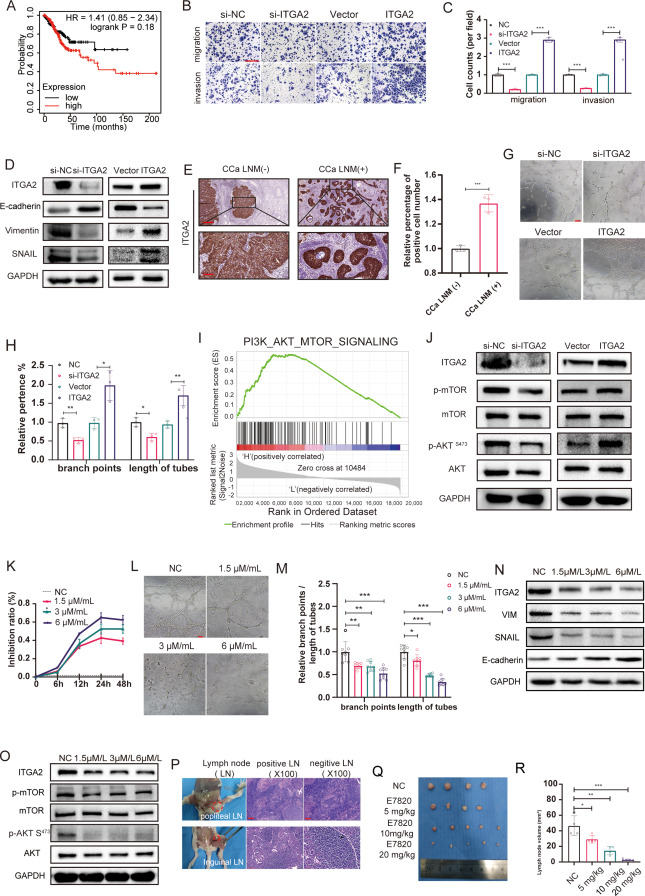
Inhibition of ITGA2 suppresses cervical tumorigenesis and metastasis by targeting the AKT/mTOR signaling pathway


Cervical cancer (CCa) is a substantial global health concern, and its lymph node metastasis (LNM) significantly diminishes patients' survival rates.1 Hence, a thorough investigation into the molecular mechanisms driving this progression is vital. Integrin alpha 2 (ITGA2) plays critical roles in various tumorigenic processes via cancer-related signaling pathways.2 In this study, we advanced the understanding of ITGA2's influence on CCa by revealing its role in promoting CCa LNM. Mechanistically, ITGA2 up-regulates SNAIL, instigating epithelial–mesenchymal transition (EMT) and activating the protein kinase B (AKT)/mammalian target of rapamycin (mTOR) pathway, thereby augmenting CCa LNM. Remarkably, the inhibitor E7820, by down-regulating ITGA2 expression, shows promise in attenuating EMT and LNM of CCa. Therefore, E7820 could be developed as a potential therapeutic agent for the treatment of CCa LNM.
